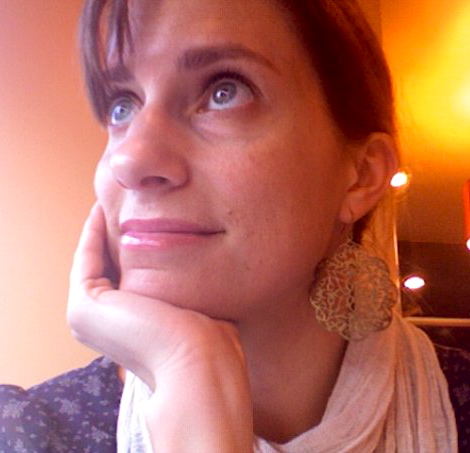A Brave Potential Observee Thinks About Observation – Anna Loseva

I’ve been observed several times in my life. First, when I was going through obligatory school teaching practice still as a university student. At one of the two schools this observation was really thorough and included a detailed examination of my lesson plans as well as comments on the classroom procedures, cohesion of lesson chunks and overall logics of conducted lessons. That was the finest example of classroom observation I have had. That was 7 years ago. Since then I have been observed only twice at my current workplace: once by our department chair when I had just taken my position, and once again when a young new teacher was going to join us and was sent to sit in some of the lessons.
As you can guess, there’s no regulated practice of compulsory teacher observation in my context. Nor are most of the teachers interested in setting it up. So long as I don’t have observation of my classes, I am liberated from the judgment of people who would observe me and I’m left to openly speak from my heart in this blog post.
Observation is risky
Just the other week teachers at the department were having a heated discussion about the dangers caused by open student forums. In such forums, university students leave their comments about teachers and lessons. These comments include factual information such as the requirements for credits and exams and descriptions of how classes are held. But you can also find more personal comments about teachers, both favorable and unfavorable. Surprisingly to me, many of the staff members expressed a strong position of opposition to these forums. They argued that whatever we do in the class should stay in the class. It’s true that the student remarks were incredibly subjective, and sometimes even rude, but basically the whole idea behind these forums, at least to me, seems like an attempt to leave useful information for the generations of faculty and students to come.
When I started to search for the reasons why teachers were reacting to the forums like this, I made a clear connection with lesson observation. People in general fear being exposed. We don’t like open doors or windows, so we buy safe locks and cover windows with curtains. In the same way, we feel safe in the classroom when the door is closed. And it’s difficult to come to terms with the idea that an intrusion into our class can take place without judgmental undertone.
If you walk along the dark grim corridors of my university, you will find that many doors have signs carrying variations of this one message:

It shouts out “Hazard!” It is a powerful and illustrative image. These rooms are forever closed to unwanted visitors. It is dangerous to enter them. Which led me to a question: What is so precious about your lesson that you are guarding it so fiercely?
Observation is about attitude
While I was trying, and at first failing, to answer this question, I asked myself two more:
Do I wish to be observed? A sure but shy “yes” because I recognise observation as a way to start improving my teaching. Do I wish to observe others? An unsure and loud “yes”, again, because being present in a class of another teacher might open up a whole view of this class’s learning, which will give me more data upon which to build my own future development.
The fear of being observed for quality, correctness and efficiency in regards to how you’re doing your job is explicable and very human. Who wants to be judged like that?! My personal answer for now, like so many other things in life, is change your perspective. It seems to me that it all comes down to what message you send, both as an observing teacher and as an observed one. The observation process involves two sides and it’s not about the opposition of those sides, not about the conflict that happens between them, but rather a mutual readiness to learn more, analyze, talk and make change. In this readiness the right attitude seems to be a precondition. Some of my ideas about observation derive Harrison Owen’s guide to open space technology. While the two at first may seem disconnected, lately somehow everything seems to relate in my understanding. Thus …
- When being observed, don’t think that another person knows your situation better than you do, don’t pre-assume you’re on the defensive. Welcome another perspective.
- When observing, don’t suppose you know the situation better than the person you are observing. Be gentle, too J
- My ideal path towards accepting observation would start with a sharing of lesson plans with colleagues. First, I would naturally want to share one that I felt happy with, confident about, maybe even a touch proud. We would compare our lesson plans, see how it goes, and try it again. Couldn’t it be a painless first step?
My expectations and beliefs about observations
I’ve been opening up to challenges more and more lately. What I once used to think of as a tough scenario, something that sent shivers down my spine, now seems to be an exciting venture to plunge into. I keep stretching my elastic comfort zone, not just stepping out of it for a moment to then get back right back into it. So here, as an inexperienced but brave potential observe, I will loudly pronounce my expectations and beliefs about observation:
- I realize that I don’t want to be reassured that my lessons are good in all aspects. I am intelligent enough to know that’s not possible.
- I am not ready to simply take comments at face value, dialogue (not argument, though) must be a part of the process.
- I like to think that observation will spark conversations resulting in reflection and small good changes — and even if there is no change, at least I will have the chance to take part in a good conversation.
- I don’t think of observation as a clue to deal with my professional faults.
- I like to hope that observation won’t aim at telling me, and teachers in general, how to teach “right”.
- I’m ready to learn, but at the same time I want my view of teaching, my attitude as I have it now, to stay undimmed.
- It doesn’t really matter what you think of yourself. Others might be able to see you better. This is an idea that several iTDi friends shared with me a month ago. They weren’t using it in reference to observation, but can’t it be true for the topic of this post in a certain way, too? Still, the idea that others might be able to see you better than yourself, stands in contradiction with some of what I have written above. Life is a complicated matter!
The funniest thing is that even now, after I have written this post and tried to sound convincing, I’m still scared out of my wits when I think of myself being observed. I fear observation. I expect it to lay bare and then thrust in my face my most vulnerable professional spots. But by pronouncing my fears out loud, I’m facing them. And only by going through that uncomfortable first experience will I be able to put up with those fears and eventually crush them.
Now that I have that out of my system, I suggest we all take a small but real step. Let’s take a sheet of paper and a pen. Let’s talk to ourselves, honestly and with an open heart. Let’s jot down several simple sentences which could describe one of our recent lessons. Then read over those sentences and end our note to ourselves with one of two statements, the one that we think fits better:
I don’t need observation.
I need observation.
You might end up with something along these lines:
I never have enough time. I need observation. – Anna Loseva
I always have too much time. I need observation. – Kevin Stein
In the end, whatever you think is right for you at the moment is the only right way to be for this exact moment. I believe there are many thruths. However, it’s good if your assumptions can be shattered every now and then, or even just cracked open a little bit. By doing that a new truth might find its way to shine through.
Connect with Anna and other iTDi Associates, Mentors, and Faculty by joining iTDi Community. Sign Up For A Free iTDi Account to create your profile and get immediate access to our social forums and trial lessons from our English For Teachers and Teacher Development courses.









 I’m sitting by the Chao Phraya river outside a house in the Bangplad area of Bangkok, Thailand where I’ve rented a room for a month. Behind me is Soi 70-2, a local neighborhood built on canals and swampland. Getting to this house, or anywhere else in the Soi, means walking along very narrow concrete paths lined closely on both sides by mostly one-story houses. Everyone has their doors and windows open, and I can’t help looking inside. That’s because I’m an outsider here – one who knows nothing about Thai culture except what I’ve read in books — so looking is what I do to learn. I look, I interpret, I ask around, and I make mistakes.
I’m sitting by the Chao Phraya river outside a house in the Bangplad area of Bangkok, Thailand where I’ve rented a room for a month. Behind me is Soi 70-2, a local neighborhood built on canals and swampland. Getting to this house, or anywhere else in the Soi, means walking along very narrow concrete paths lined closely on both sides by mostly one-story houses. Everyone has their doors and windows open, and I can’t help looking inside. That’s because I’m an outsider here – one who knows nothing about Thai culture except what I’ve read in books — so looking is what I do to learn. I look, I interpret, I ask around, and I make mistakes.

